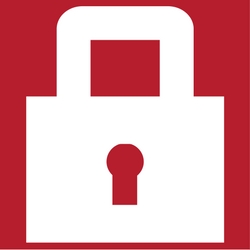What can I do about cybercrime?

by Elizabeth Jenike, IT Services
National Cyber Security Awareness Month offers us a good opportunity to take a step back and remember why we talk so much about making sure we’re staying safe online.
Cyberattacks -- and especially internationally reported cyberattacks -- also provide a good reminder.
The third week of October 2020, several news sources reported that the Federal Bureau of Investigation (FBI) was bringing charges against a Russian military intelligence agency for planning to orchestrate various cyberattacks aimed at disrupting the 2020 Tokyo Olympics (which has been rescheduled for 2021). Accordingly, the Japanese officials tasked with the oversight of the Tokyo-based event noted that they would prioritize cybersecurity.
"The [International Olympic Committee] and the Organizing Committees of the Olympic Games have identified cyber security as a priority area and invest a lot to offer the Olympic Games the best cyber security environment possible," an IOC spokesman told Reuters in an email.
That’s good news for the folks participating in and attending the Olympic events. Better news: According to Forbes, 83 percent of large-scale organizations increased their cybersecurity posture in response to the pandemic and work- and learn-from-home necessities.
These kinds of events and statistics bring to light -- or, we should probably say, bring back to light -- the critical nature of remaining vigilant. IT Services employs security engineers and analysts who do their part to keep bad actors out of our network -- but you can help them by following these cybersecurity tips:
Use a password manager
Ever hear of the “correct horse battery staple” analogy to password generation? If you haven’t, you’re in for a treat. Essentially, this principle holds that four words chosen at random would be hard to guess for a hacker, even ones with brute force tactics at their disposal. Plus, using a randomized phrase is easier for humans (you!) to remember.

However, making four-word phrases for every website you log in to (feels like thousands, nowadays) might be a little harder to remember. If you don’t want to have to remember potentially thousands of passwords, a password manager is crucial. There are several available for free: LastPass, KeePass, and 1Password are all good examples that allow you to store the information you don’t want to keep in your brain.
Use VPN
We say this often enough, but it still bears repeating. Even if you’re not accessing confidential Miami information or servers, using a virtual private network (VPN) can add that extra security when connecting to Miami resources.
Find out more about VPN and how to download the client in the Knowledge Base.
Use your brain to ferret out phishing
The most important part of a company’s cybersecurity posture is -- you guessed it -- the employee. You are the link that bad actors will go after first. You’ve seen the easy-to-spot emails that implore the reader for money because of a sick uncle or the infamous Nigerian prince scam that attempts to get unsuspecting users’ bank account information by claiming to have come into a large sum of money they magnanimously want to share. Phishing attempts are becoming more sophisticated, however, especially ones targeting Miami faculty and staff.
A good rule to remember is that your department chair, senior administrative officer, or payroll department will never ask for your personal information via email. And they especially won’t ask you to send them gift cards. We promise.
What are some other good ways to be vigilant on the internet? Tweet at us @miamiuit with your own tips.

